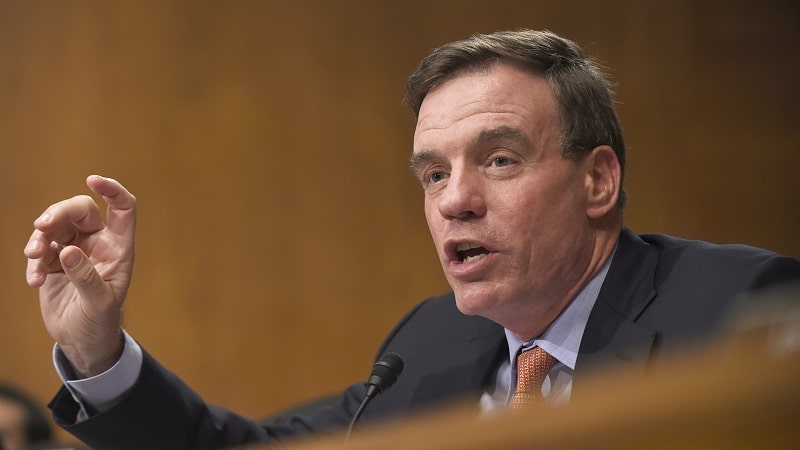
Sen. Mark Warner, D-Va., said today that a bill to promote Open RAN technologies will be included in the Senate’s annual defense bill, but added that appropriators have not committed to fully funding the bill.
Amidst debate on the National Defense Authorization Act (NDAA) on the Senate floor, Sen. Warner stepped away to speak at an online event about the future of 5G hosted by USTelecom-The Broadband Association. Sen. Warner, a former telecommunications executive, said while the United States is still figuring out its strategy to provide a 5G alternative to the China-based company Huawei, a move to Open Radio Access Network (RAN) systems will help with the next generation of wireless.
“Move away from a closed hardware dependent system and move to a more software dependent system,” said Sen. Warner, promoting Open RAN.
RAN cell sites, a key part of the network architecture for 5G, historically have had radios, hardware, and software provided by one manufacturer in a “closed proprietary solution.”
Huawei, the Sweden-based company Ericsson, and the Finland-based company Nokia have been the three major vendors in the RAN space, said Chris Boyer, vice president of global security and technology policy at AT&T, speaking at the same event and citing a 2018 study from the Center of Strategic & International Studies (CSIS).
Open RAN, Sen. Warner said, “gives a great opportunity for the West writ large and American companies, in particular, to compete on a very successful basis against Huawei going forward.” American-based companies like Amazon Web Services, Facebook, Google, Microsoft, and Verizon formed the Open RAN Policy Coalition in May.
Sen. Warner’s legislation, initially introduced in January, calls for over $1 billion in Open RAN funding. $750 million would go towards research and development (R&D) for Open RAN technologies, Warner said. He added that another $500 million would go towards collaborating with international partners to promote open standards.
“We were able to get our legislation into the NDAA in the next manager’s amendment,” said Sen. Warner on Tuesday, calling that “the good news.”
The “bad news,” he said was that the Senate Committee on Appropriations, chaired by Sen. Richard Shelby, R-Ala., dramatically cut back funding for the bill. $50 million for the R&D side, $25 million for international development side, said Warner, calling the appropriations “puny at best.” He urged the technology executives listening to push for more funding.
More funding, Warner said sends the message that there will be an alternative to Huawei.
“This model on 5G, and potentially the ability to create an alliance of the willing of democracies that have an adherence to rule of law, may be the 21st century model for what alliances are going to look like,” Warner said. “Alliances are going to be less based in military strength and more based on technology collaboration.”
“Let’s make sure we not only get this into law, but we get this into law with enough financial resources to demonstrate the American commitment to not only national, but ultimately global leadership in this area,” he said.
